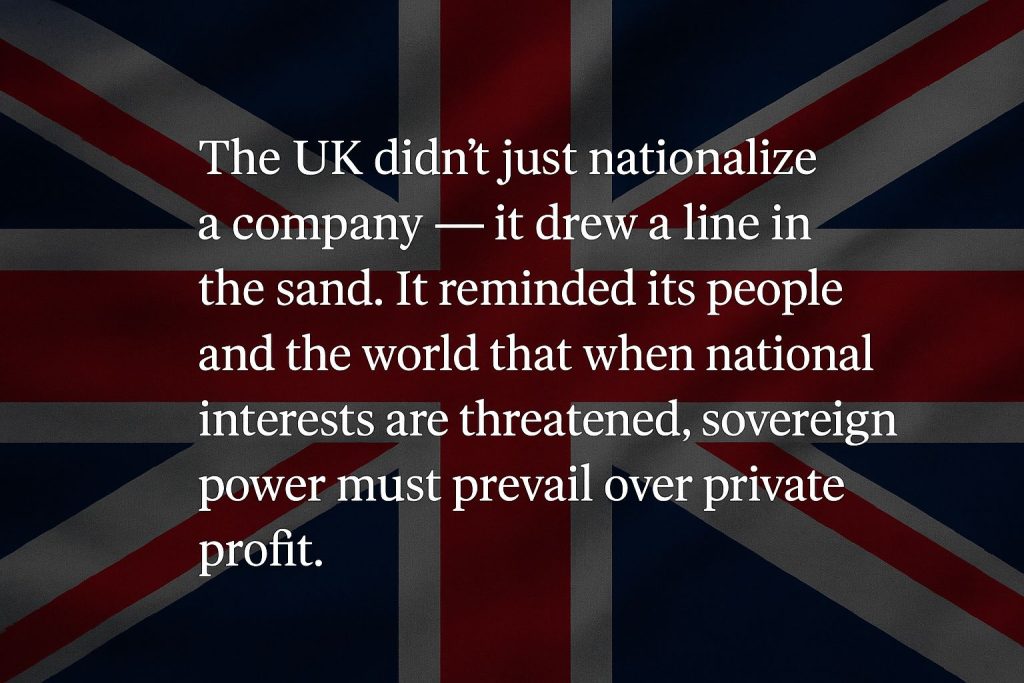A National Asset Reclaimed
In a historic and unapologetic move, the United Kingdom has seized control of the Scunthorpe plant the last facility in the country capable of producing virgin steel. This comes after the Chinese-owned Jingye Group announced plans to shut down the plant due to £700,000 in daily losses and growing environmental costs.
But make no mistake this is not merely an economic decision. This is a national reckoning. A return to common sense. A refusal to let a foreign power dismantle Britain’s industrial backbone without a fight.
Emergency Law, Extraordinary Action
On April 12, Parliament convened for an emergency Saturday session an extremely rare occurrence to pass the Steel Industry (Special Measures) Act 2025. This legislation gives the UK government sweeping powers to take control of critical manufacturing operations at risk of shutdown.
For Britain, this is more than a policy change. It is a strategic pivot one that places national security and self-sufficiency over corporate appeasement.

Steelworkers: The Unsung Patriots
Before lawmakers acted, it was the workers who rose to the occasion. In a scene rarely witnessed in modern industrial history, British Steel employees physically blocked Jingye executives from accessing vital infrastructure within the plant. Fearing sabotage, they stood guard not with slogans, but with resolve.
They weren’t “activists.” They were patriots. They safeguarded their country’s last remaining steel stronghold when no one else would.
Implications for National Security and Global Politics
Had Scunthorpe shut down, Britain would have become the only G7 nation incapable of producing its own virgin steel. The consequences for defense, transportation, and infrastructure would’ve been dire.
This move though likely to upset Beijing could strengthen the UK’s standing in Western strategic alliances like AUKUS, particularly in safeguarding submarine and defense-related steel supply chains.
A Wake-Up Call for Sri Lanka
This is the part we cannot afford to ignore.
While Britain claws back industrial sovereignty, Sri Lanka continues to lease, sell, and pawn off critical infrastructure to foreign interests without conditions, without transparency, and without foresight.
Ports, power plants, energy corridors all have become bargaining chips. If the UK can stand up to foreign ownership of strategic industries, then why can’t we?
Conclusion: A Line in the Sand
The British government has done something bold. Something many thought impossible. It reminded the world that when national interest is on the line, decisive state action is not just justified it’s necessary.
This is not just a British story. It is a global message.
Sovereignty must never be outsourced.
For more truth-telling, unapologetic commentary, and patriotic insight stay with us at




